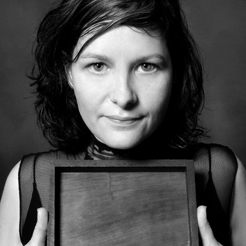Siobhan Reddy is the Studio Director at Media Molecule. Having started the business with four colleagues creating groundbreaking games, she has helped grow the business to a quality level that saw Sony make an acquisition, recognising it as a key mover and shaker in the technology industry. But success hasn’t come without some critical situations!
TELL US ABOUT A MAJOR CRISIS YOU HAVE FACED
The most common major crisis that we have to deal with is when the balance between time, quality and resource isn’t being struck.
A specific example of this was when we chose to delay one of our games – LittleBigPlanet 2 – from a Christmas release, to a January release, as it was not ready.
There are many implications to such a decision, but the bet we made was that releasing something unfinished may satisfy a short term need, but would have longer term effects on the franchise and our studio overall. Missing Christmas sales was a huge deal for both our staff and also, obviously, for Sony. Luckily for us, Sony agreed, due to the nature of the game and the high standard the community were used to, that it would be a mistake to release too early.
We overcame this by ensuring this slip was worth it, we worked very hard and made sure that what we released was 10/10. The team rallied together. It was given very high praise by critics and it was commercially successful so the team participated in some healthy profit share.
HOW DO YOU PREPARE FOR CRITICAL SITUATIONS YOU FORESEE ON THE HORIZON?
We have a quarterly directors meeting where we pull everything apart and rebuild it back up again! There are five of us and we represent different areas, so I listen to their nagging doubts/worries and try and implement the right course of corrections. The mistakes that we are going to have to fix are already being made, so we are trying to be more eyes-wide-open about that.
We need to ensure quality, and so we have to scope projects appropriately. Games are incredibly difficult to plan & schedule due to their experimental nature. We have a combination of left/right brained people and so there isn’t one way to work. We are trialling a tool we have written to help everyone be more visible of what the status of the project is, and should also enable them to be more organised.
WHAT ADVICE WOULD YOU GIVE TO A NEW LEADER ABOUT COMMUNICATING WITH THEIR TEAM DURING A CRISIS?
When making our decision about LittleBigPlanet 2 we asked everyone in the team to sit and play through the game, and let us know what they felt. Anyone who played it agreed that it was going to be great but we needed more time to get it 100% right. We were transparent and empathetic to the personal loss that people would experience. It’s okay for people to be disappointed and angry; we didn’t try and spin the news.
When being given bad news, people are finely attuned in seeing through spin so I’d suggest give them the information, and the plan for moving through it, and let them digest it. Be accurate, as informative as you can be, as empathetic as you can be and then give people space to react.
HOW DO YOU MANAGE TENSION AND STRESS IN YOURSELF?
Tension and stress are difficult to avoid in this type of job. I walk in the woods, walk my dog, do yoga, and then sit down, play the game and write down what I need to do and then get on with it.





